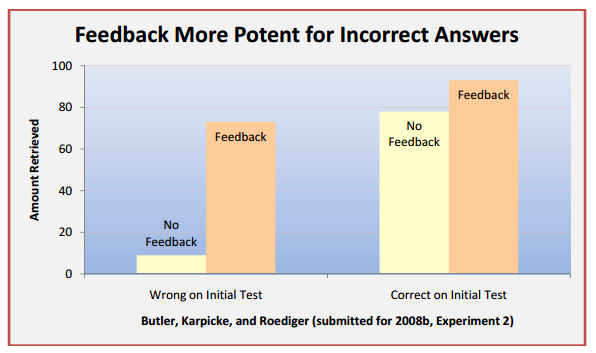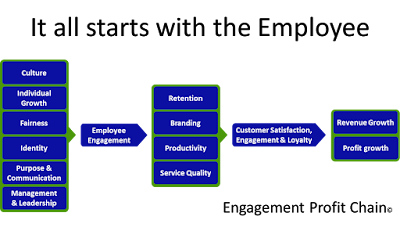It is generally accepted that the wall fell as a result of
the actions of Regan and Gorbachev although it probably would have fallen
anyway as a result of the systematic and serious failures that evolved inside
the totalitarian system.
You would think that companies most often are managed by
principles derived from capitalism and while this might be true there are a
large number of companies that have adopted similar vices to those of the
former communist countries in the world.
The question is if what is likely to have caused communism
to fail is a good foundation for a long term sustainable strategy aimed at
creating engagement with both employees and customers.
Test your company against the doctrines below and find out
if you are facing obsolescence:
1. Power is concentrated on few hands
A significant issue of the communist countries was the
limited number of people that had authority to make real decisions regarding resource
allocation in strategic and operational situations. A culture of delegation
assumes that the top leadership of the company are better qualified to make all
decisions on the corporation’s behalf – in short they know better. This kind of
“Politburo” structure fights empowerment like the body attacks a virus – the
distribution of power that is at the core of empowerment is a sacrilegious concept
that cannot even be discussed. A concentrated power structure isolates the
leaders from the organisation and alienates the employees and the customers
rather than engaging them. Organisations that successfully engage both
employees and customers have 240% better performance according to Gallup.
2. Information access is limited and decision making processes are not transparent
A relic from the industrial age where information was key to competing it is now mainly used by poor managers to cement their power position. Very little information can be considered so proprietary it should be kept from employees. The social revolution is changing the way that information is used inside companies and it is also making it very difficult to keep decision making processes secret when all stakeholders have the possibility to instantly spread uncomfortable secrets immediately.
3. The leadership is not democratically elected.
In principle the board and though them the CEO should be
(s)elected by a democratic process that operate by shareholders voting rights.
In many companies this process is not as many shareholders don’t exercise their
voting rights. The largest stock holders in the world are pension funds managed
by professional managers, not by their true owners. This means that rather than
owners voting for managers to take care of their best interest, it becomes a
case of managers voting for other managers / with that the danger of managers
acting in their own best interest rather than the owners. One of the signs of a
“Politburo” is a board with members that has not changed for many years and
always sides with the CEO.
4. The company has a lack of purpose
If you have a mission of becoming the “Very best company in
the x industry” you are probably not the most purpose driven company in the
world. Instead you are likely to have a focus on serving “shareholders”, which sounds
a lot better that senior management serving themselves. It is important to have
a strong purpose that can attract and engage employees, customers and other stakeholders
if you don’t want to compete on price alone. If your leadership team are defenders
of status quo – they are likely to be a Poliburo: The society for the preservation of senior
management.
5. Doctrine based thinking
The only argument for concentrating power on a few hands is
the assumption that they no best and are best equipped to manage the company.
When this becomes the case there is no real reason for seeking information or
advice outside the power structure. As people are isolated from the real world
doctrine based group think starts to kick in. Decisions are based on assumptions
that might have been true once but never gets revalidated. It is particularly
dangerous if it gets combined with short term financial results that can give
the illusion that all is well. Short term results can be made by stealing from
long term results.
6. Strategies that benefit few
If a politburo structure enters a company so does
entitlement. As the power circle constantly reinforces their own importance the
companys strategy turns to serving the few that matters. In strategy creation
the interest of other stakeholders will start to be underserved to give to the
few. Starving customers and employees can create short term results and with
that the illusion of success. When CEO’s make more than 500 times the pay of
ordinary workers, it is a sign that the company has started to serve the few. These
strategies are rarely sustainable in the long haul.
7. Central planning structure
The Politburo owns all the money and need to concentrate resource
allocation and planning to a central point. The focus turns from investing in
new equipment, people and in new business opportunities to a focus on
efficiency. More effective P&L or Balance sheet control of business units
is replaced with a micromanaged central structure where everybody has to make
endless request to just get the minimum for the business survival. It is a
great way of starving the business at the same time as being able to blame the
individual units of not contributing.
8. Policies are designed to limit people, not
enable them
The bureaucracy shows its face once the company’s policies
turns from guiding the people to starting to control and limit them. Policies
will move from enabling everybody to be a mean to only protect the company
interest and money. When the health and safety policy that should be designed
to protect the employee turns into a 50 page legal document that describes what
will happen to an employee that does not follow the rules – then you know you
have turned into an old communist country.
9. Staff functions transform into secret police
When policies change to protect the company, a similar
change can take place in the staff functions. Originally designed to support
the business with financial, people, legal and IS support the staff functions
start to control, check and report behaviour that can be deemed dangerous to
status quo. They start to resemble the security police in the old communist
states. This has a significant impact on employee engagement and instead of
seeking new ways of doing things and creating value, employees gets trained into
low profile, low risk behaviour. Don’t spend any money, do make any requests
and don’t challenge status quo.
10. Lack of engagement kills productivity, initiative
and innovation
When employees understand that they are not encouraged or
rewarded for taking initiative, learning and experimentation stops. Productivity
growth will start to decline compared to high engagement organisations although
it can be hidden by the results created though starving the company. With the
concentration of information, a focus on low risk behaviour and low employee
engagement – innovation will stop. Innovation can only happen if people are
allowed to challenge status quo and the doctrines of the corporation – this is
one of the key reasons the old communist countries did not survive.
If your company share some of the characteristics of an old
communist country it might be a reason to start looking for healthier doctrines
that enable employees and engage customers.
You cannot run a 21st
century company based on 20th century management principles.















